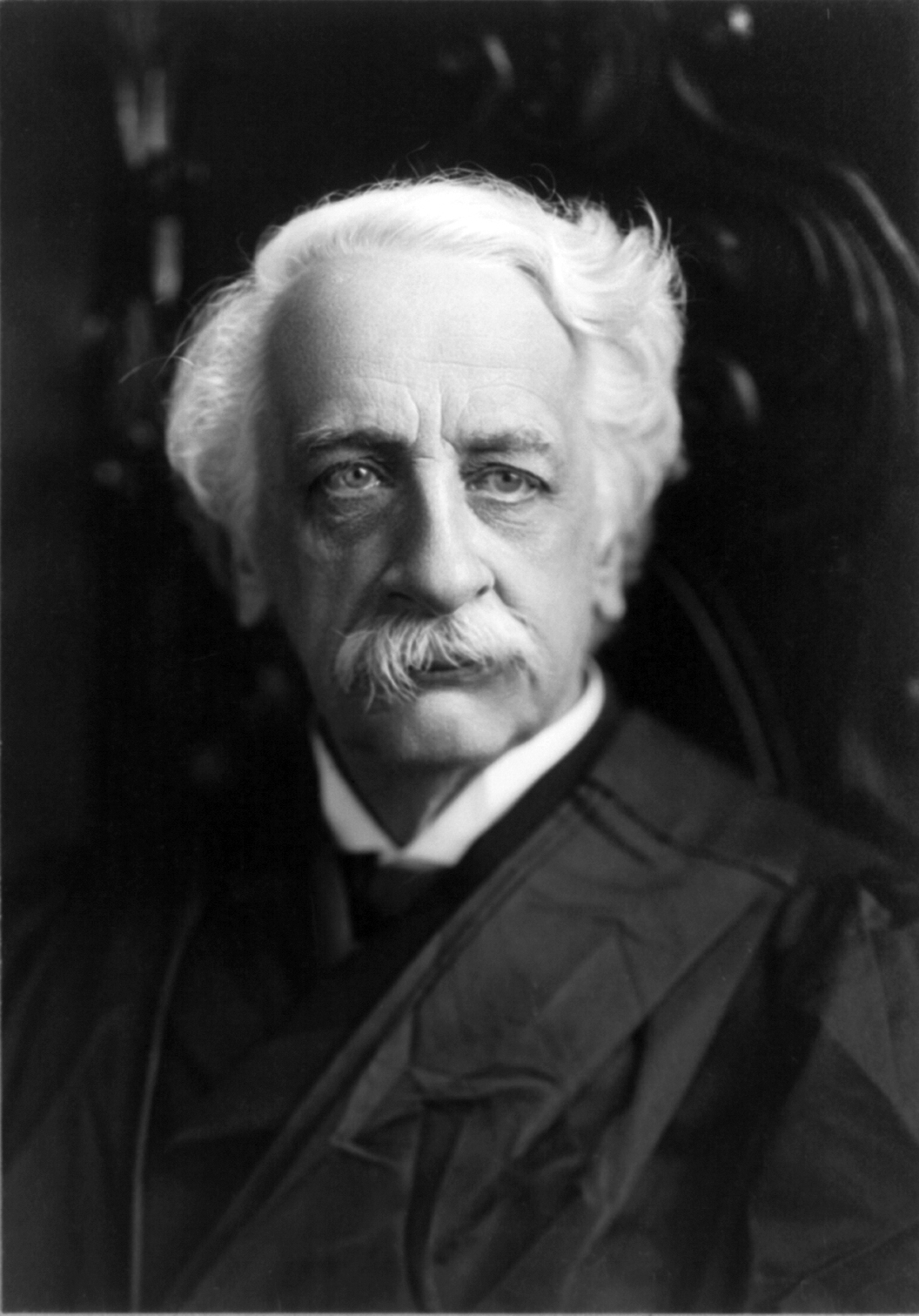Maxwell V. Dow on:
[Wikipedia]
[Google]
[Amazon]
''Maxwell v. Dow'', 176 U.S. 581 (1900), is a United States Supreme Court decision which addressed two questions relating to the
 Associate Justice
Associate Justice
Due Process Clause
A Due Process Clause is found in both the Fifth and Fourteenth Amendments to the United States Constitution, which prohibit the deprivation of "life, liberty, or property" by the federal and state governments, respectively, without due proces ...
. First, whether Utah's practice of allowing prosecutors to directly file criminal charges without a grand jury
A grand jury is a jury empowered by law to conduct legal proceedings, investigate potential criminal conduct, and determine whether criminal charges should be brought. A grand jury may subpoena physical evidence or a person to testify. A grand ju ...
(this practice goes by the confusing name of information
Information is an Abstraction, abstract concept that refers to something which has the power Communication, to inform. At the most fundamental level, it pertains to the Interpretation (philosophy), interpretation (perhaps Interpretation (log ...
) were consistent with due process, and second, whether Utah's use of eight jurors instead of twelve in "courts of general jurisdiction" were constitutional.
Background
The passage of the Fourteenth amendment expanded the application of theBill of Rights
A bill of rights, sometimes called a declaration of rights or a charter of rights, is a list of the most important rights to the citizens of a country. The purpose is to protect those rights against infringement from public officials and pri ...
to questions of state law with the Privileges or Immunities Clause
The Privileges or Immunities Clause is Amendment XIV, Section 1, Clause 2 of the United States Constitution.
Along with the rest of the Fourteenth Amendment to the United States Constitution, Fourteenth Amendment, this clause became part of the C ...
which states "No State shall make or enforce any law which shall abridge the privileges or immunities of citizens of the United States", The landmark 1876 Slaughter-House Cases
The ''Slaughter-House Cases'', 83 U.S. (16 Wall.) 36 (1873), was a landmark U.S. Supreme Court decision which ruled that the Privileges or Immunities Clause of the Fourteenth Amendment to the U.S. Constitution only protects the legal rights t ...
, set a narrow standard for the class of rights that clause may be applied to.
At the time of the case, the laws of Utah allowed criminal charges by grand jury or by "information", and provided for varying numbers of jurors depending on the court and charges involved.
Charles L. Maxwell was tried and convicted of robbery in Utah in 1898, and was eventually appealed to the Supreme Court, which heard the case in 1899.. His suit argued that by denying him a twelve-member jury, and by avoiding the use of a grand jury, Utah's prosecution of him had violated his incorporated Due Process Clause
A Due Process Clause is found in both the Fifth and Fourteenth Amendments to the United States Constitution, which prohibit the deprivation of "life, liberty, or property" by the federal and state governments, respectively, without due proces ...
rights.
Opinion of the Court
 Associate Justice
Associate Justice Rufus Wheeler Peckham
Rufus W. Peckham (November 8, 1838 – October 24, 1909) was an American lawyer and jurist who served as an Associate Justice of the U.S. Supreme Court from 1896 to 1909, and is the most recent Democratic nominee approved by a Republican-majorit ...
, writing for the majority, held that Maxwell's rights under the Due Process Clause had not been violated. Much of the decision rested on the Slaugher-House Cases precedent.
Associate Justice John Marshall Harlan
John Marshall Harlan (June 1, 1833 – October 14, 1911) was an American lawyer and politician who served as an associate justice of the Supreme Court of the United States from 1877 until his death in 1911. He is often called "The Great Disse ...
's lone dissent argued instead for the incorporation of the entirety of the first eight Amendments to the Constitution, a position he had been the first Supreme Court Justice to articulate in his lone dissent in ''Hurtado v. California
''Hurtado v. California'', 110 U.S. 516 (1884),. was a landmark case decided by the United States Supreme Court that allowed state governments, as distinguished from the federal government, to avoid using grand juries in criminal prosecutions.
...
'' (1884), and continued to argue in cases such as ''Twining v. New Jersey
''Twining v. New Jersey'', 211 U.S. 78 (1908), was a case of the U.S. Supreme Court. In this case, the Court established the Incorporation Doctrine by concluding that while certain rights enumerated in the Bill of Rights might apply to the state ...
'' (1908).
Subsequent developments
While the Court now incorporates a far greater portion of the Bill of Rights against the states, the specific narrow rights addressed in this case, specifically the right to a grand jury, and the right to a twelve-member jury in criminal cases remain unincorporated. In particular, with regard to jury size for state criminal prosecutions, '' Williams v. Florida'' (1970), for example, held that six jurors was sufficient; '' Ballew v. Georgia'' held that five were insufficient eight years later.See also
* List of United States Supreme Court cases, volume 176References
External links
* {{US5thAmendment crimpro, grand United States due process case law United States Fifth Amendment case law United States Supreme Court cases 1900 in United States case law United States jury case law United States grand jury case law United States Supreme Court cases of the Fuller Court February 1900 in the United States